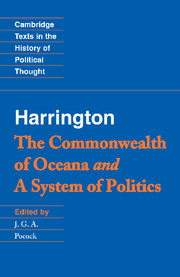I will now set aside the persistent and general facts that prepared the way for the great revolution that it is my purpose to describe and turn to the particular and more recent facts that determined its place, birth, and character.
Of all the nations of Europe, France had long been the most literary. Yet men of letters had never before exhibited a spirit of the sort that emerged around the middle of the eighteenth century, nor had they previously occupied the place in society that they assumed at that time. Nothing like this had ever been seen in France or, I believe, anywhere else.
In France, men of letters did not regularly participate in affairs, as they did in England. Indeed, they had never been so far removed from the world of affairs. They were not invested with authority of any kind and fulfilled no public function in a society already replete with functionaries.
Yet unlike most of their German counterparts, they did not avoid politics entirely or confine themselves to pure philosophy or belles lettres. They took a persistent interest in subjects related to government. In truth, this was their defining occupation. They could be heard, whenever one wished, expounding the origins of society and primitive social forms, the fundamental rights of citizens and prerogatives of authority, the natural and artificial relations among men, the mistakenness or legitimacy of custom, and the essential principles of law.


